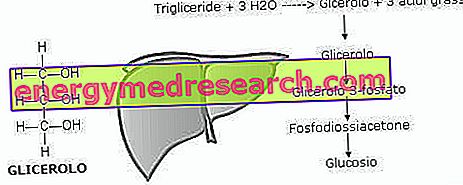ZINC SULFATE IDI ® is a drug based on zinc sulfate
THERAPEUTIC GROUP: Mineral supplements
IndicationsAction mechanismStudies and clinical effectiveness Usage and dosage instructionsWarnings Pregnancy and lactationInteractionsContraindicationsUndesirable effects
Indications ZINC SULPHATE IDI ® - Zinc
ZINC SULFATE IDI ® is indicated in the prevention and treatment of zinc deficiency states, which occur in particular periods such as pregnancy and lactation.
ZINC SULFATE IDI ® is also used as an adjunct in dermatological treatment of vulgar acne and in the medical / surgical field of extensive wounds and severe burns.
Mechanism of action ZINC SULFATE IDI ® - Zinc
Trace elements such as zinc are micronutrients present in minimal quantities in the human organism but of crucial importance in the functioning of the entire system, whose deficiencies affect the entire balance of organic functions.
More precisely, the zinc has:
- A catalyst role, important in assisting the activity of numerous enzymes;
- A structural role, falling within the chemical composition of the zinc-finger protein domains, useful for the regulation of gene expression;
- A regulatory role, intervening in the constitution of the phospholipid double layer of membrane, and thus contributing to the cellular network;
- An immunomodulatory role, ensuring the correct proliferation and maturation at the thymic level of the lymphocyte component.
Deficiencies of this trace element, fortunately rare and concentrated above all in a small number of patients, manifest themselves with serious dermatological lesions, diarrhea, asthenia, increased susceptibility to infections, alterations of gustatory and olfactory perception and delayed wound healing.
Studies carried out and clinical efficacy
1.ZINCO AND MORTALITY FROM POLMONITE
BMC Med. 2012 Feb 8; 10 (1): 14.
The addition of zinc to the pharmacological therapy of severe pneumonia in pediatric patients has been shown to be effective in reducing the mortality rate, especially in HIV-infected children.
2. THE ROLE OF THE ZINC IN HEPATOPATHIES
Nutr Clin Pract. 2012 Feb; 27 (1): 8-20.
Zinc deficiency is a condition that is very often associated with liver disease, aggravating its course and clinical signs.
In these cases, treatment with 50 mg of zinc daily has been shown to be effective in reducing both the severity of symptoms and the clinical evolution of the disease.
3. THE ZINC IN BURNED PATIENTS
J Burn Care Res. 2012 Jan 12.]
Study that attempts to carefully evaluate the concentrations of zinc to be used during burns, in order to optimize the cell regeneration process without determining the appearance of serious side effects, especially against the gastrointestinal system. In this regard, the intake of 50 mg of zinc daily seems effective and safe.
Method of use and dosage
ZINC SULPHATE IDI ®
124.8 mg oral sulfate monohydrate tablets for oral use, equivalent to 200 mg of zinc sulphate heptahydrate.
The dose of zinc to be taken varies considerably according to the needs of the patient and the pathology for which treatment is provided.
In the prophylaxis of possible deficiency states, the intake of 1-2 tablets per day is able to satisfy even the most demanding needs, while for the treatment of acne vulgaris, for example, are indicated quantities of double zinc.
The optimization of the jejunal absorption of this trace element is guaranteed by fasting and with sufficient liquids.
Warnings ZINC SULFATE IDI ® - Zinc
The known competitive action between copper and zinc significantly increases the risk of developing copper deficiency in patients undergoing long-term zinc therapy.
Although the side effects are limited almost exclusively to cases of intoxication, it is important to consult your doctor before taking ZINCO SULFATO IDI ®.
ZINC SULFATE IDI ® contains lactose, therefore its use is not recommended in patients with lactose intolerance, lactase enzyme deficiency or glucose-galactose malabsorption syndrome.
PREGNANCY AND BREASTFEEDING
The use of zinc during pregnancy is indicated exclusively in certain pathological conditions, and should in any case be supervised by your doctor.
This trace element is partly secreted in breast milk, therefore it would be appropriate to periodically check the zinc concentrations, in order to avoid possible poisoning in the infant.
Interactions
The concomitant administration of zinc and antibiotics could reduce the intestinal absorption of antibiotics, thereby compromising the therapeutic activity.
On the contrary, the contextual use of diuretics, anticonvulsants, antituberculosis drugs and proton pump inhibitors could alter the pharmacokinetic characteristics of zinc, significantly increasing its requirements.
In a similar way diets rich in phytates and iron could significantly reduce the absorption of this trace element.
Contraindications ZINC SULPHATE IDI ® - Zinc
ZINC SULFATE IDI ® is contraindicated in case of hypersensitivity to the active ingredients or to the relative excipients.
Undesirable effects - Side effects
Despite the intake of zinc, according to the prescribed therapeutic dosages, it is generally well tolerated and free of clinically relevant side effects, the excessive consumption of this mineral could determine the appearance of nausea, abdominal pain, vomiting, diarrhea, irritation of the gastro mucosa - American with possible gastritis.
In the aforementioned cases it would be advisable to immediately suspend the administration.
Note
ZINCO SULFATE IDI ® is a drug that can be sold only with a medical prescription.



